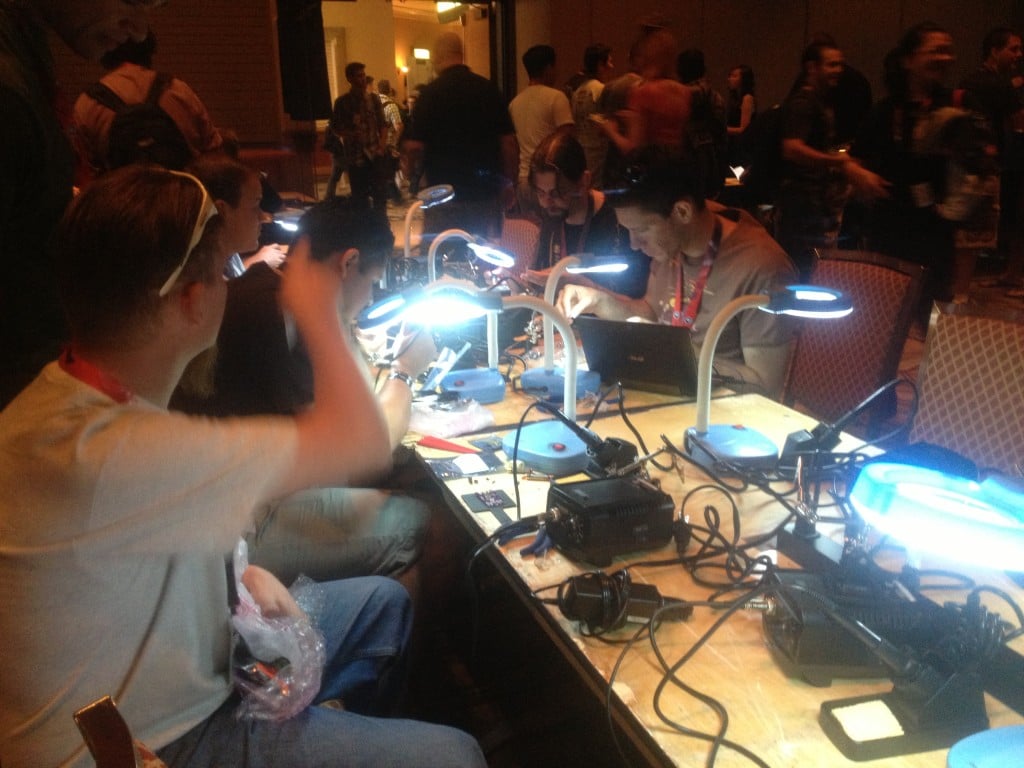A non-profit group that represents prominent computer security researchers has issued an open letter to the automotive industry calling for more collaboration on cyber security issues. The group, I Am The Cavalry said the automotive industry needs to elevate cyber security to put it on par with other vehicle safety issues. The announcement, on Friday at DEF CON 22 in Las Vegas – an annual hacker conference – included a letter to CEOs in the automotive industry, calling for the adoption of “five key capabilities that create a baseline for safety relating to the computer systems in cars.” The letter asks for safety to be built into the design of computer systems in vehicles. “Increasing reliance on computer systems and internet connectivity in cars is opening up a whole new area of consumer risk, much of which is still being investigated and understood,” the group said. “Modern cars are computers […]
DEFCON
Remote Car Hacks Depend On The Internal Design, Say Researchers
When purchasing your next car, you face many options. You want a good price, but also good gas mileage and perhaps an entertainment system for the kids in back. But for Dr. Charlie Miller, Twitter, and Chris Valasek, director of vehicle security research at I/OActive, the main criteria is whether or not the car is a likely candidate to be hacked. In particular they said they were interested in cars that would be more susceptible to remote hacking. Work done previously by Professor Stefan Savage along with graduate students from the University of Santa Barbara and the University of Washington used the Onboard Diagnostic port to control a car. Last year Miller and Valasek used internal wiring to gain control of their test cars. This year the pair said they wanted to take a step back and look at how cars in general communicate internally as a predictor of hacking […]
Dan Geer’s Other Keynote: Embedded Devices Need A Time To Die
With the Black Hat Conference well under way and DEFCON starting later this week, the security world’s attention will turn to Las Vegas, where some of the cyber security industry’s top researchers and thinkers will be holding court. One of the most anticipated talks is the Black Hat Briefings opening keynote. This year, the honor goes to none other than Dr. Dan Geer, the CISO of In-Q-Tel, the investment arm of the U.S. intelligence sector. Geer’s talk on Wednesday, August 6, 2014 is entitled “Cybersecurity as Realpolitik.” In anticipation of Dr. Geer’s Black Hat, we’re releasing another recent talk he gave: this one a keynote speech at our May, 2014 Security of Things Forum in Cambridge, MA. In this talk, Dan focused on the security of embedded devices and the fast-emerging Internet of Things. (A full transcript of the talk is available here.) “The embedded systems space, already bigger than what is normally thought of as […]
Hacker Summer Camp: Security Cons Blossom In The Desert
The mercury is expected to top 104 degrees Fahrenheit (40 C) in Las Vegas next week. And that could mean only one thing: it’s conference time for some of the world’s top computer hackers. Indeed, next week brings the 22nd installment of the DEFCON hacker conference in Las Vegas, and the 18th of Black Hat, DEFCON’s younger, more straight-lace sibling. But, while Black Hat and DEFCON are still the main attraction on the Las Vegas strip, they’re hardly the only shows in town. B-Sides Las Vegas, an alternative mini-con, is in its fifth year and is attracting many of the “cool kids” in the security community to do presentations and demos on Tuesday and Wednesday, August 5 and 6th over at the Tuscan Suites and Casino. Running alongside B-Sides is Passwords 14, a conference that started in Norway and is in its second year on U.S. soil. As its name would […]
Google Unveils Project Zero Hacking Team
Google has unveiled an all-star team of hackers and security researchers it is calling “Project Zero.” According to a post on Google’s security blog, the company is hoping to use its security research muscle to investigate the security of “any software depended upon by large numbers of people, paying careful attention to the techniques, targets and motivations of attackers.” Research like Google employee Neel Mehta’s, which helped expose the “Heartbleed” vulnerability in OpenSSL is a good example of the kinds of stuff Project Zero will do. Researchers will devote their time to finding and reporting software vulnerabilities and researching new exploits, mitigations and “program analysis.” The company said it plans to disclose any vulnerabilities it finds to the vendor first, then to the public in an external database. The public can monitor “time to patch” (given that the vulnerability is disclosed ahead of a patch). Project Zero brings Google’s elite hackers under […]




